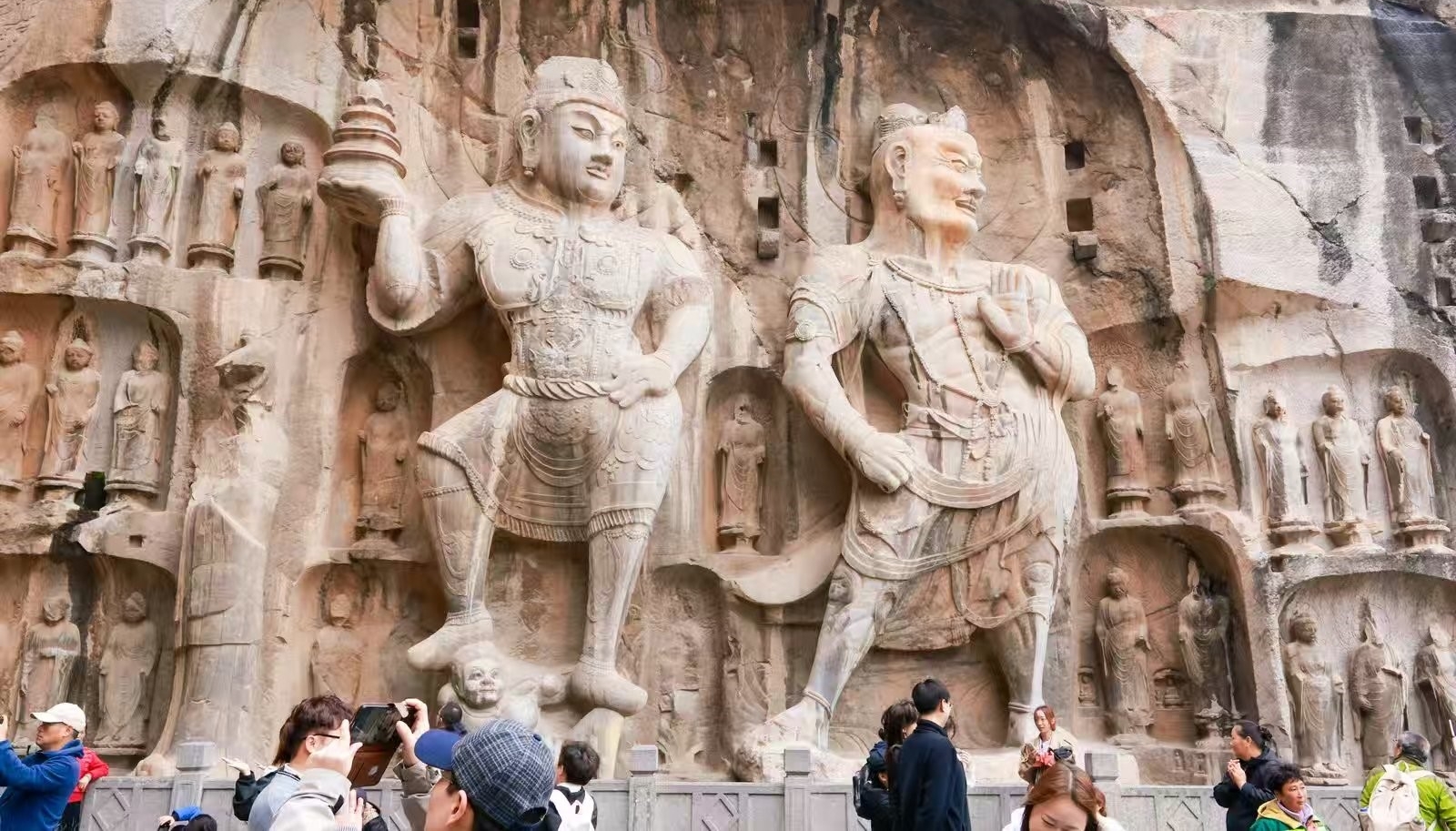Representatives of historic capitals from around the world convened in Luoyang, Henan province, on Oct. 16-18 for the 6th International Ancient Capitals Forum, exploring how cities can balance cultural preservation with modern development while driving economic growth through heritage-based initiatives.
Under the theme "Ancient Capitals, New Vitality," the three-day event brought together heritage preservation experts, urban planners, cultural sustainability leaders and government officials in Luoyang, one of China's ancient capital cities with a history spanning multiple dynasties.
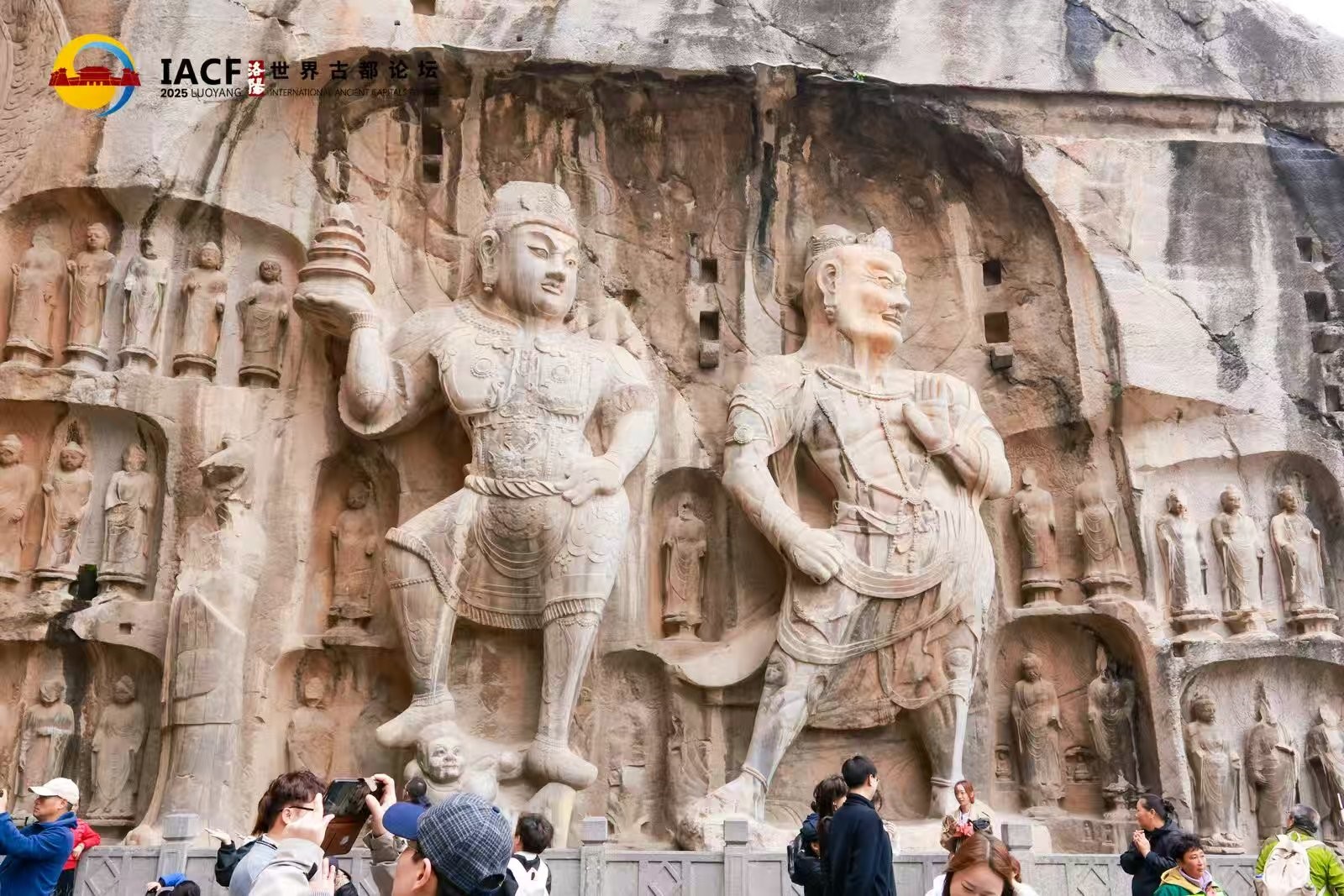
A section of the ancient Longmen Grottoes, Luoyang, Oct.18, 2025. [Photo courtesy of IACF]
"Every country has a bedrock of their ancient civilizations," said Jason Dunn, a senior editor at Sinolingua Press during a roundtable discussion at the event, echoing points raised by representatives from Egypt and the Arab League. The challenge, he said, is to "mix modernization, but also preserve that old heritage, as well as the actual structures themselves."
The forum opened Oct. 16 with a welcome banquet at the Yishui Grand Hotel, followed by an immersive digital performance titled "Tracing the Ode to the Goddess of the Luohe River" at the Dahehui Cultural Center. The multimedia experience combined light, storytelling and history to showcase Luoyang's commitment to merging traditional culture with contemporary artistic expression.
On Oct. 17, delegations from historic capitals including Xi'an, Kyoto and Athens delivered keynote presentations at Guanfeng Hall in Shangyang Palace Cultural Park, discussing strategies for integrating cultural preservation into urban innovation. The formal sessions were followed by an exhibition featuring intangible heritage-inspired cultural and creative products, showcasing artisans and entrepreneurs revitalizing traditional crafts through modern design.
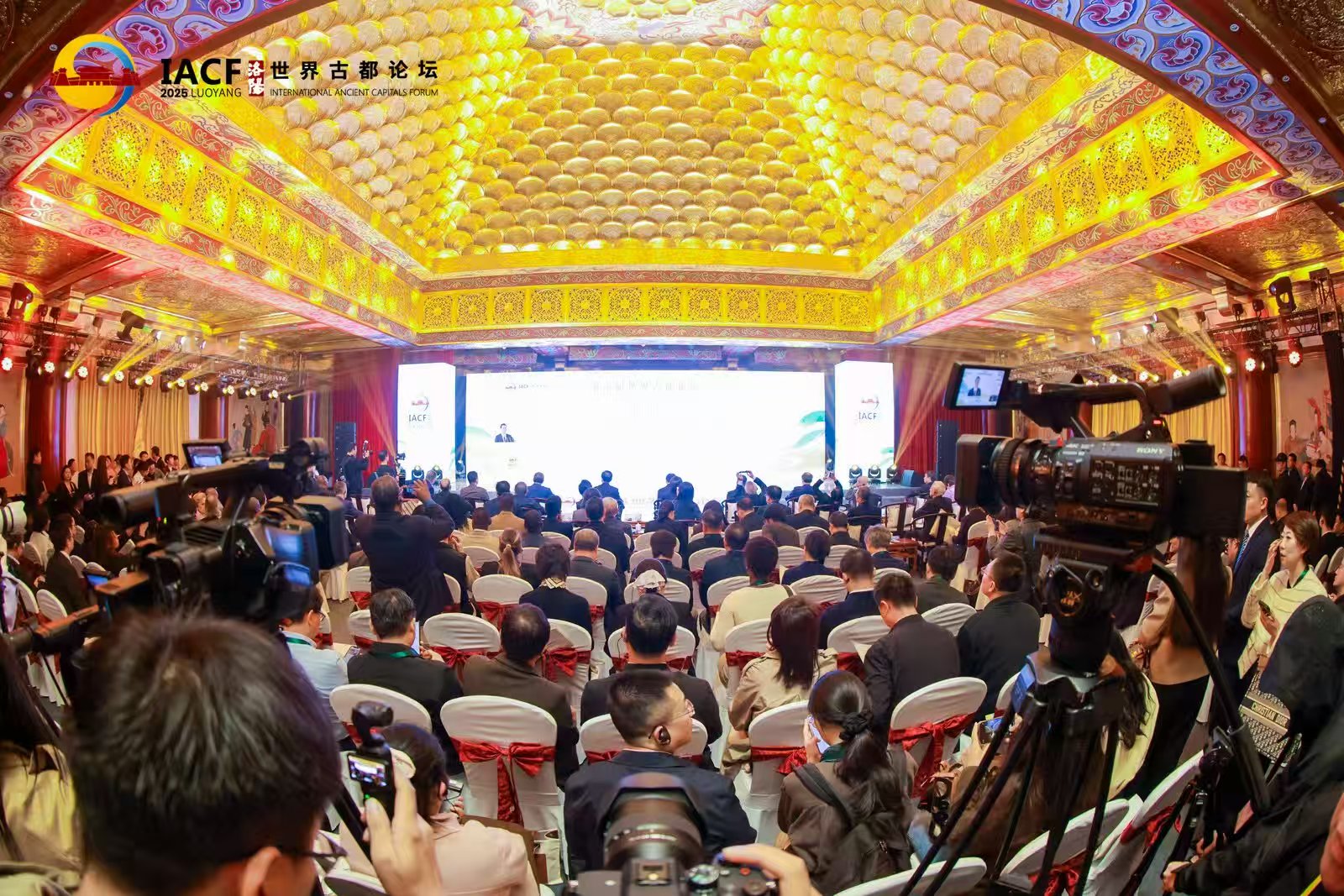
A speaker delivers presentation at Guanfeng Hall in Shangyang Palace Cultural Park, Luoyang, Oct. 17, 2025. [Photo courtesy of IACF]
Afternoon sessions split into two parallel tracks. The first examined "Urban Renewal and Cultural Inheritance in Ancient Capitals," focusing on how cities can embed heritage into planning and infrastructure. The second explored "Industrial Development and New Economic Drivers in Ancient Capitals," featuring discussions on cultural industries, tourism reform and creative economies as pathways to sustainability.
"It now is not just the history and culture that it has, but make it match with modern society," said Jack Klumpp, an American video journalist, highlighting the need for ancient capitals to remain relevant in contemporary contexts.
Steven Weathers, a TV host and internet celebrity living in China, noted during his speech what he called a resurgence of international interest in China's Tang dynasty (618-907) era: "That's when the world looked to China for fashion, trade, engineering, architecture," he said. "And now look at this forum, filled with so many people from around the world looking back to China."
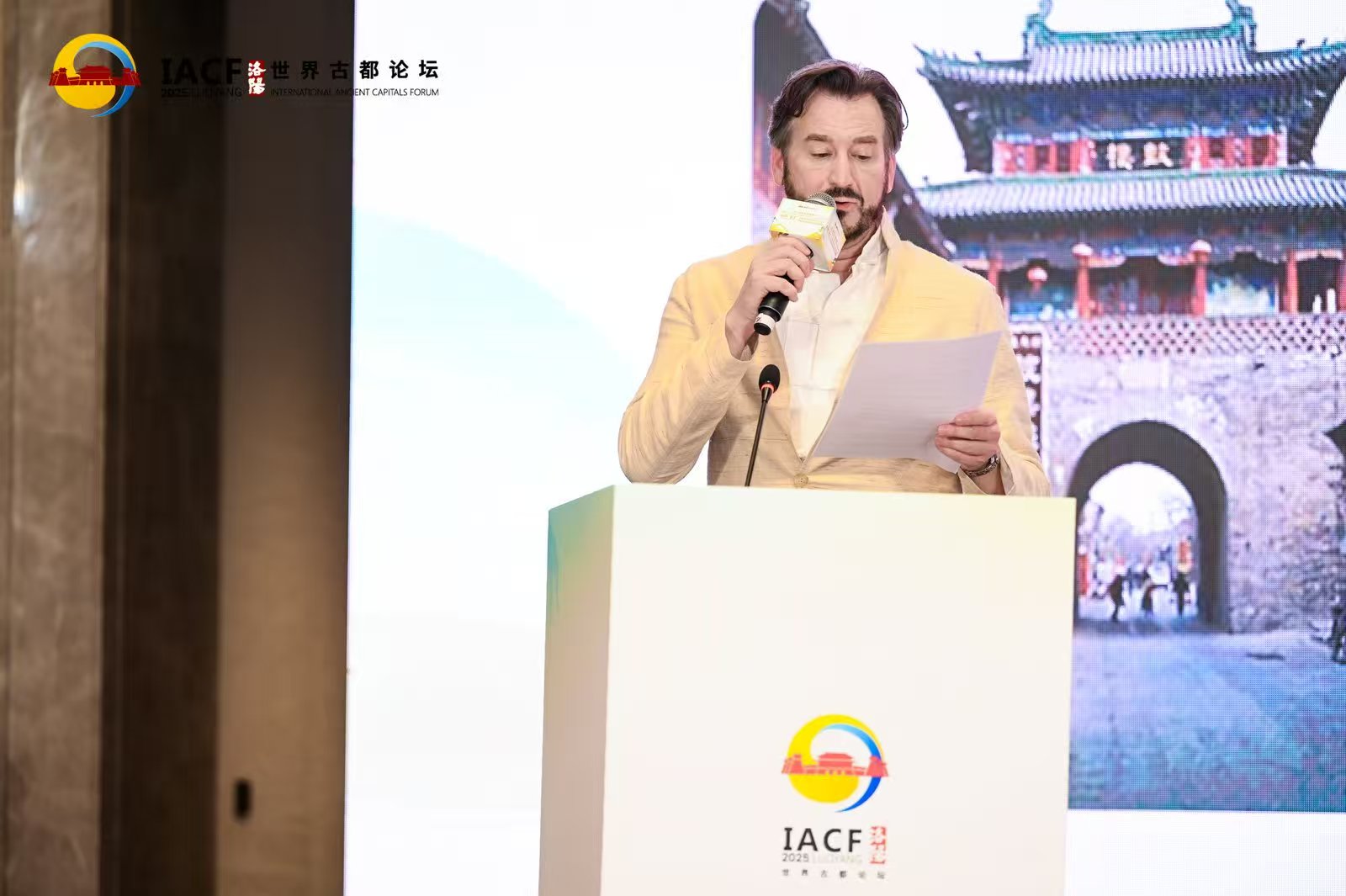
Steven Weathers, TV host and internet celebrity, delivers a speech during the forum's exchange session at Yishui Grand Hotel, Luoyang, Oct. 18, 2025. [Photo courtesy of IACF]
On Oct. 18, participants embarked on a cultural field trip that brought Luoyang's historical significance to life. The morning began at the Longmen Grottoes, a UNESCO World Heritage Site exemplifying ancient Chinese artistic achievement. The tour continued at the Yingtian Gate Site of the Sui-Tang Luoyang City, a newly revitalized heritage complex demonstrating urban archaeology's role in contemporary cultural education and public engagement.
Oxford University professor Mark Pollard praised the government's commitment to preservation, noting that "the people of China know more about their heritage than equivalent" populations elsewhere. He also emphasized the importance of understanding China's deep historical roots.
"You can't understand modern China without understanding ancient China," Pollard said, adding that despite visiting since 1983, understanding China remains an ongoing pursuit. "It's important now more than ever for people to understand China," he said.
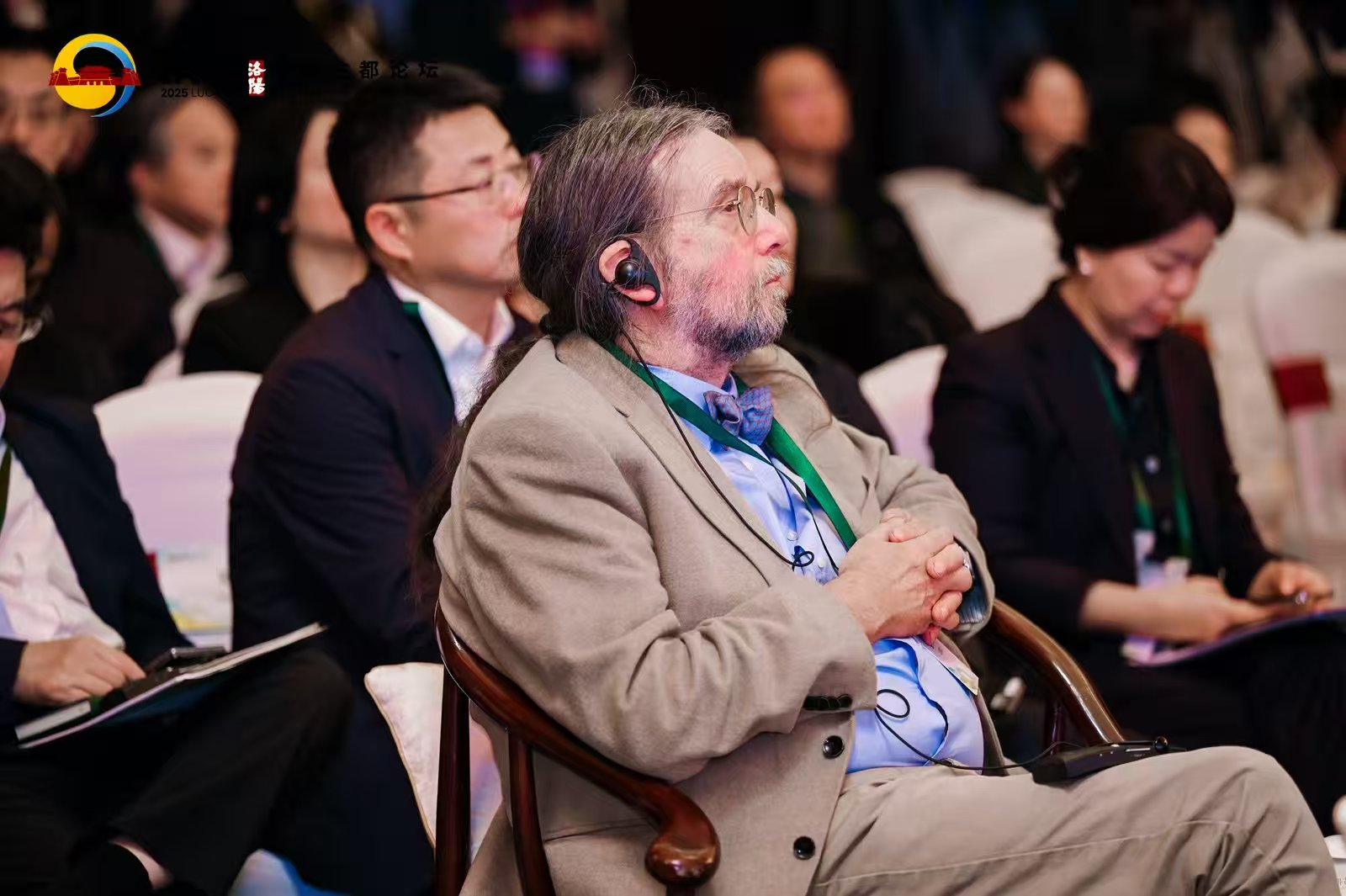
Mark Pollard, professor at Oxford University, listens to delegations from historic capitals at Guanfeng Hall in Shangyang Palace Cultural Park, Luoyang, Oct. 18, 2025. [Photo courtesy of IACF]
Student volunteers emphasized the forum's role in fostering cultural exchange. Zhou Wenting, 21, said she volunteered "to build bridges between cultures," explaining that "giving clear directions, or simple explanations can build understanding between cultures." Meanwhile, local resident Wang Ruiying, 20, said the event helps "people know about Luoyang." Their participation reflects a broader trend among Chinese youth who are increasingly invested in their cultural heritage, even in voluntary and supportive roles. This generational embrace of tradition is also evident in the resurgence of hanfu, traditional Chinese clothing, among young people who see cultural preservation not as nostalgic, but as integral to their identity and China's future development.
The forum's timing coincided with the United Nations' 80th anniversary, with organizers emphasizing alignment with the U.N. sustainable development goals through heritage-led innovation, inclusive growth, environmental stewardship and cultural diplomacy.





 Share:
Share: 






 京公网安备
11010802027341号
京公网安备
11010802027341号